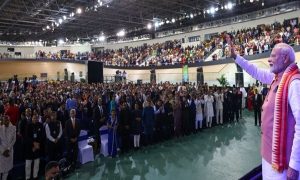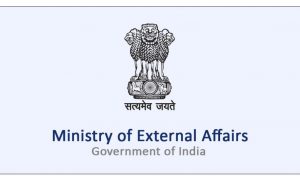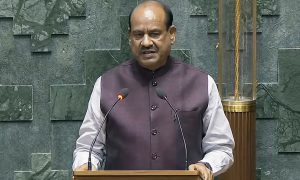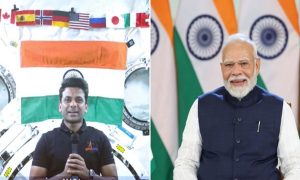Signalling another milestone in India’s trajectory for space launches, the Indian Space Research Organisation (ISRO) on Monday i.e 14th March 2022 successfully carried out the ground testing of the newly developed solid booster stage (SS1) for its new launch vehicle Small Satellite Launch Vehicle (SSLV) at Satish Dhawan Space Centre at Sriharikota.
The test was conducted at 12:05 pm when the booster was fired up. In a tweet, ISRO mentioned that the successful testing has given sufficient confidence to proceed with the first developmental flight of SSLV (SSLV-D1). The remaining stages of SSLV (SS2 & SS3) have successfully gone undergone necessary ground tests and are ready for integration.
The testing by ISRO comes at the rear of conducting the maiden launch of the new vehicles this year.
The newly developed Solid Booster Stage (SS1) motor is a three-segmented solid propulsion stage incorporating various new technologies and innovative processes which includes a bond-free joint between the segments, high power electromechanical actuator with digital control electronics, optimized ignitor and simultaneous propellant casting of all segments, which have been successfully validated in the ground test.
ISRO SSLV:
With the view to cater to the emerging global small satellite launch service market, ISRO has taken up the development of a Small Satellite Launch Vehicle (SSLV). Until now, the launch of small satellites has been dependent on ‘piggy-bank’ rides with big satellite launches on ISRO’s work-horse – the PSLV (Polar Satellite Launch Vehicle) which has had over 50 successful launches so far.
The chairman of ISRO Dr S Somanath, himself is credited with the design and development of SSLV during his term as the director of the Vikram Sarabhai Space Centre in Thiruvananthapuram since 2018.
The indigenously designed SSLV can carry satellites weighing up to 500 kg to a low earth orbit. Comparing it with PSLV, the ISRO’s work-horse can take up to a 1,750-kilogram payload. During an annual press conference back in 2019, former ISRO chairman K Sivan stated that the SSLV – the smallest vehicle at 110-ton mass, will take only 72 hours to integrate, unlike the 70 days taken now for a launch vehicle. It is pertinent to mention that the government has sanctioned an amount of Rs 169 crores for the development of the project.
The SSLV project received a commercial booking from the US space launch services intermediary Spaceflight Inc, back in 2019.




























 WhatsApp us
WhatsApp us